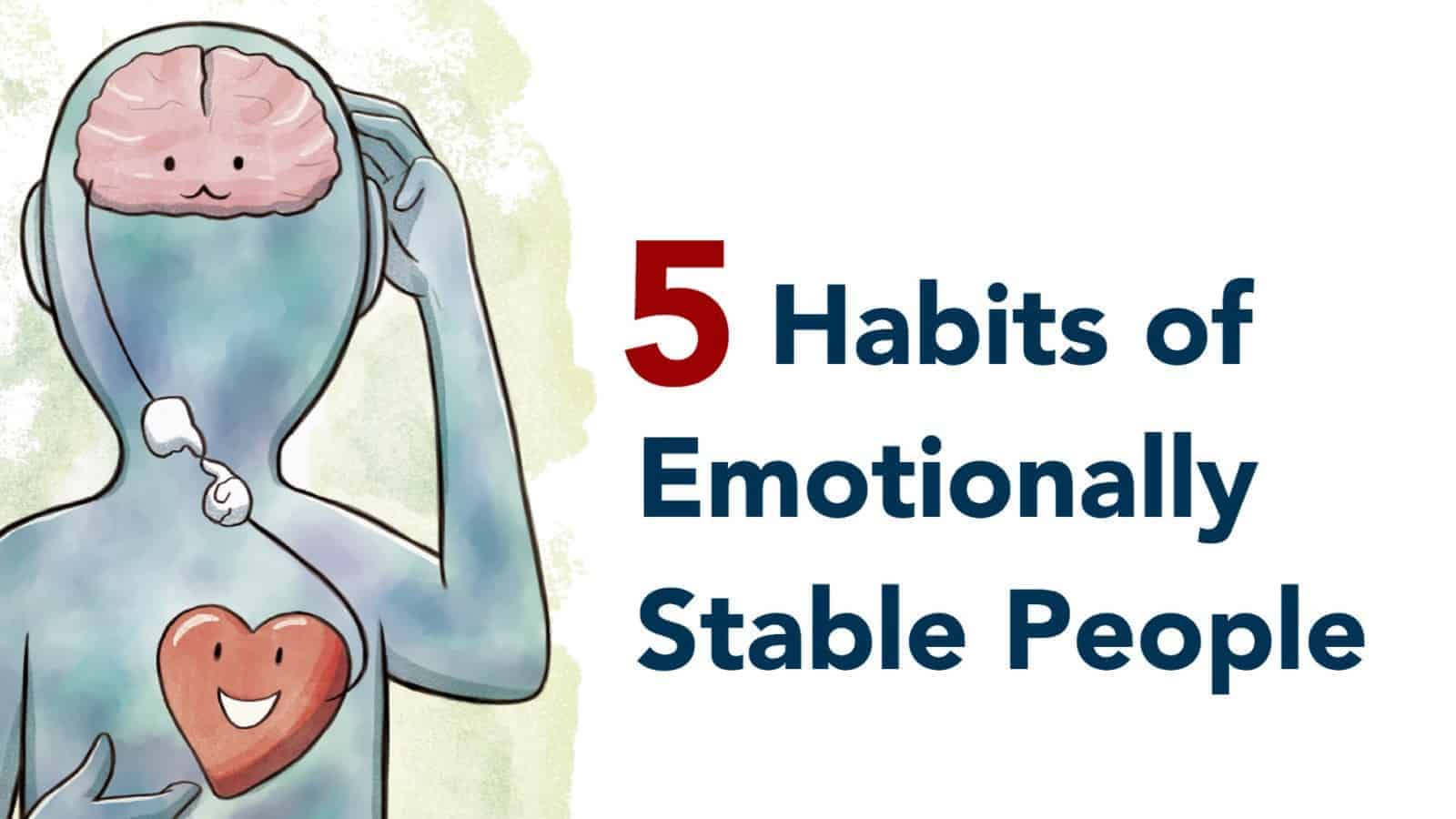Emotionally stable people are often wrongly perceived to be cold and apathetic. That’s because emotions often seem to be the antithesis of reason and stability. In reality, emotional strength isn’t about eliminating or avoiding feelings altogether; rather, it’s all about how resilient you are to stressful factors and emotions in the long-term. More often than not, stability actually refers to our ability to bounce back from challenges and bad situations.
“So, we have a choice, and sometimes it seems very hard, but the best way to heal physically or emotionally is to keep positive.” – Petra Nemcova
That’s why, when judging emotional strength, the immediate reaction to stress doesn’t really come into play. Maybe, when dealing with a challenge, someone we would perceive as a stoic person would remain calm on the outside but then not attempt the challenge again from fear of failure. On the other hand, someone can have a very visceral emotional reaction to the initial challenging factor and break down in tears – but then they come back and start on that same challenge with new methods a few days later.
In that scenario, we know that they were the more emotionally stable one as they found the resilience to pick themselves up and carry on, rather than wallow in the misery of their failure. Do you think you’re emotionally stable?
Here Are Five Things That People With Resilient Personalities Are Known To Do
1. They don’t mind taking risks.
Mentally strong people are never afraid to challenge the status quo and discover new experiences. They logically approach every new opportunity and take calculated risks to be able to reap the benefits alter. They’re also open to the prospect of failure and are ready to counter this, even if it’s unpleasant.
Author Amy Morin says, “Mentally strong people view adversity as an opportunity to grow stronger. With each obstacle they overcome, they gain confidence in their ability to become better.”
The way to practice this is by exploring where your comfort zone is and then pushing past its boundaries. Once you discover what it is that makes you uncomfortable or scared and attempt to overcome it, then next time you’ll overcome something bigger and eventually you’ll be more open to taking risks.
2. They are accountable
People who are emotionally and mentally strong know that they have to take full accountability for everything that’s happening in their lives. They never try to shift the blame onto somebody else because it’s easier and they only take feedback as a chance to improve and do better the next time around. They also complain a lot less, as they are aware that the only way to change an unpleasant situation is to do something about it. You can try working towards establishing this pattern of behavior yourself.
3. They’re open about their needs and feelings
Strength isn’t always identified by your ability to internalize different issues. Most emotionally stable people are very open about their feelings and needs. They don’t assume that they’re being a bother because, for them, no human being’s emotions and needs are an inconvenience. They know that other people’s emotions are just as valid as theirs. A good way to practice this is to work on your communication skills, first with people close to you and then with people outside your inner circle. Practice makes perfect on this skill.
4. They know how and when to set boundaries
In modern society, there’s almost a stigma associated with refusing things, created by things like the obligatory ‘to-do attitude’ or the concept of FOMO (fear of missing out). Emotionally strong people can easily say ‘no’ and can set healthy boundaries so that they can grow into their sense of mental maturity.
Even if it involves disappointing others, they put their own well-being first and can refuse things that they believe will affect them negatively. This is a very difficult habit to get into, however, persistence is key. Start small by saying no to one in every five things you’re invited into, and if you see that it works for you, expand it. It’s all about creating your own comfort zone and knowing what your boundaries are.
5. They look forward to a better future
Emotionally stable people have their eyes set on the horizon ahead and aren’t looking over their shoulder to the past. Sure, they can reflect on what’s happened in the past, looking back at the lessons they’ve learned and how they can help them develop into a stronger person. However, dwelling on past mistakes can hinder progress and make it difficult for you to move on.
Emotionally stable people “forgo immediate gratification by keeping their long-term goals in mind. They view obstacles as challenges, rather than roadblocks to their success,” says Morin.
A good way to go about this is to remove physical objects that might remind you of your past mistakes. Photos of that horrible ex? Your bus card from school, where you went every morning filled with dread? It’s time to stop holding onto these things and make space in your life for new, happier memories.
Author Hara Estroff Marano says, “At the heart of resilience is a belief in oneself—yet also a belief in something larger than oneself. Resilient people do not let adversity define them. They find resilience by moving towards a goal beyond themselves, transcending pain and grief by perceiving bad times as a temporary state of affairs.”
Learning and adapting strategies in emotional stability is never an easy task, however, you can achieve a lot more than you think if you set your mind to it and are determined to improve your own self-confidence and mental strength. Follow these five steps and you will see the difference soon enough!















 Community
Community

